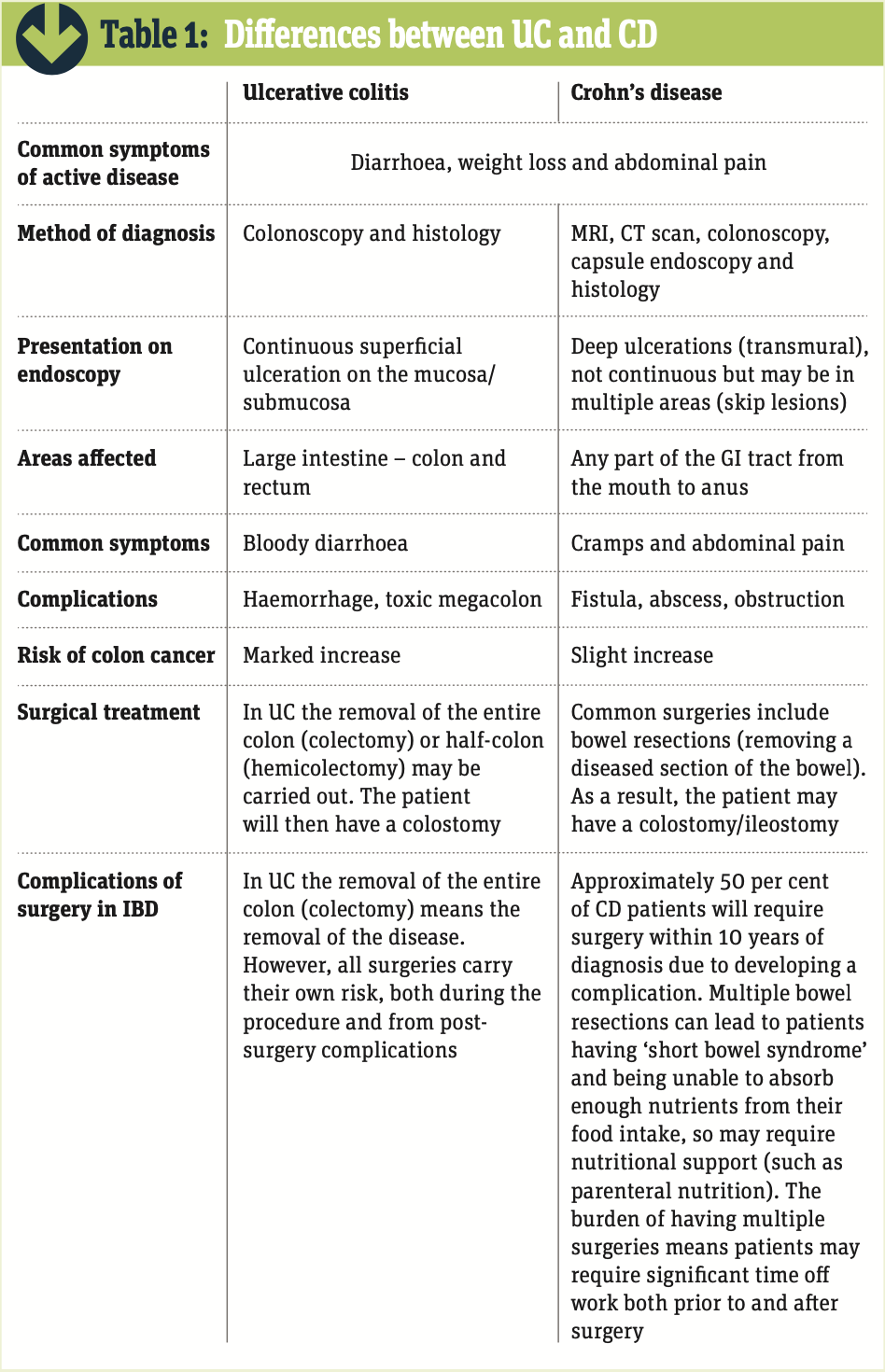Bowel inflammation leads to diarrhoea, which can be bloody, especially in UC. When the bowel is inflamed, absorption of nutrients is less efficient.
This can lead to nutritional deficiencies (including calcium, zinc, magnesium, phosphate and vitamins), anaemia (from blood loss, iron and folate deficiencies) and weight loss.
Diarrhoea, weight loss and abdominal pain may not always be present in all patients with active IBD. It is important to rule out other causes before assuming the patient has IBD or is having a ‘flare’ of their disease. Patients having an acute flare may also be systemically unwell (e.g. may experience a fever).
Patients may also suffer from extra-intestinal manifestations (EIM), which often affect the joints, eyes, skin and hepatobiliary system. Generally, the severity of EIM is worsened when IBD is more active.
Disease management
Symptoms and disease severity for both ulcerative colitis and Crohn’s disease range from mild to moderate or severe, and present differently and vary for each patient. Throughout the chronic condition, patients will have phases of being in remission to having active relapses or ‘flares’. Both diseases can present in similar ways and the distinguishing features influence how they are managed (see Table 1).

